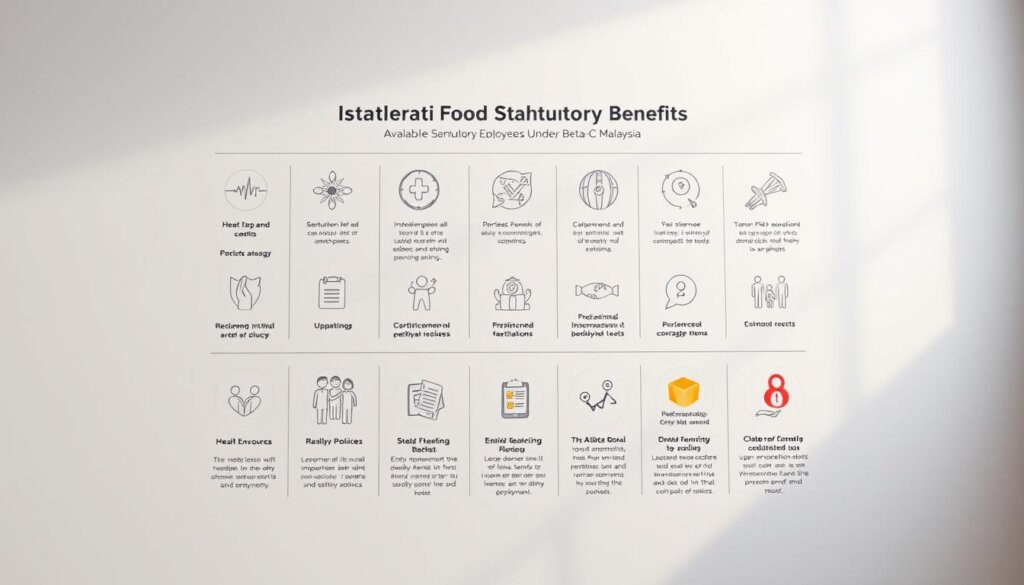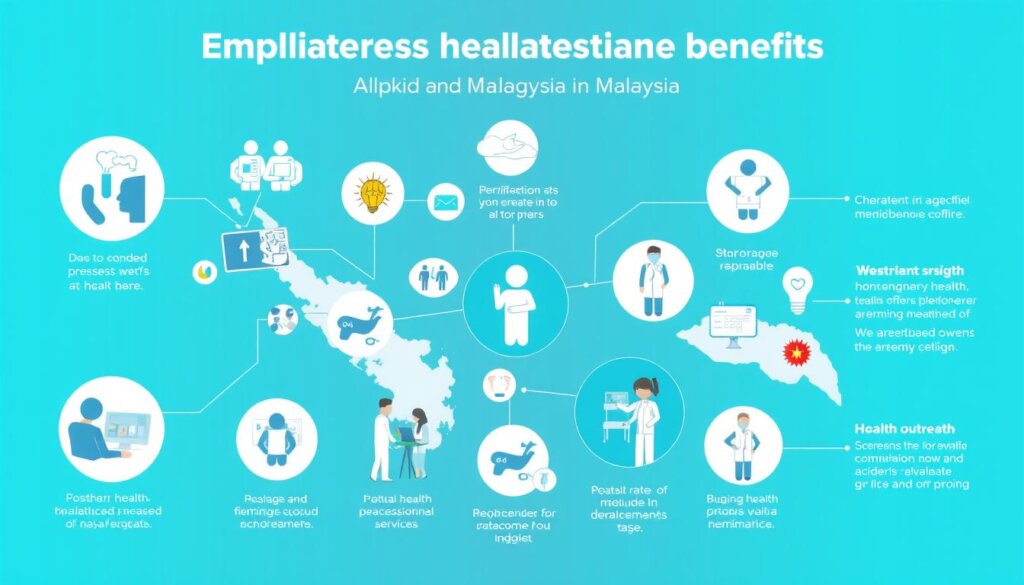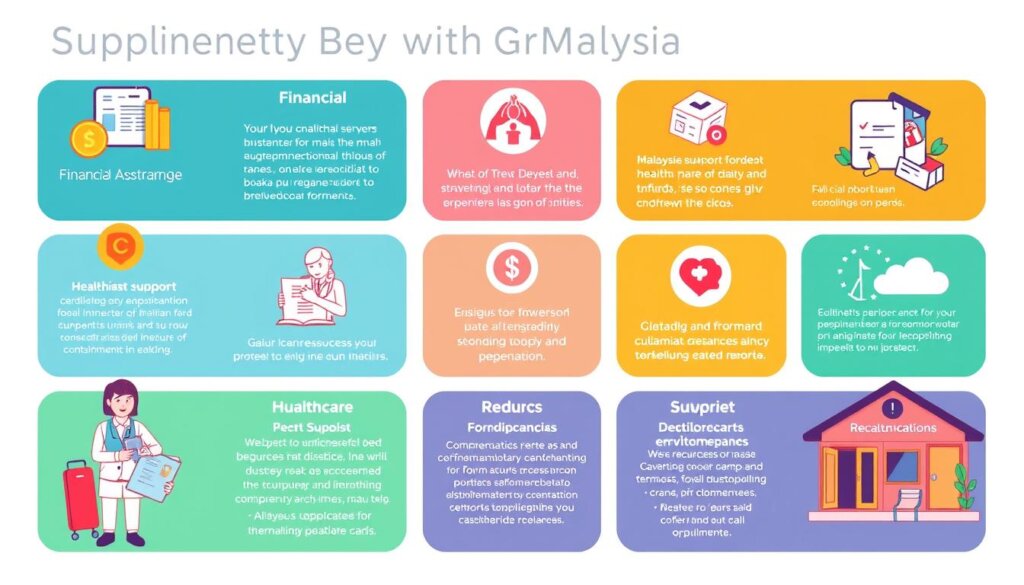In today’s competitive job market, Malaysian businesses are increasingly recognizing the importance of comprehensive employee benefits packages to attract and retain top talent.
A recent survey revealed that nearly 70% of Malaysian employees consider benefits a crucial factor when evaluating job offers, highlighting the need for employers to understand the intricacies of employee benefits in Malaysia.
This comprehensive guide will explore the various aspects of Beta-C employee benefits in Malaysia, providing valuable insights for both employers and employees. By understanding the statutory requirements, healthcare provisions, and supplementary benefits that make up a comprehensive Beta-C package, HR professionals can develop competitive compensation packages that meet the evolving needs of Malaysian employees.
Key Takeaways
- Understanding the importance of comprehensive employee benefits packages in Malaysia’s competitive job market.
- Recognizing the role of Beta-C benefits in addressing common employee retention challenges.
- Exploring the statutory requirements and healthcare provisions that make up a comprehensive Beta-C package.
- Identifying supplementary benefits that can enhance employee compensation packages.
- Developing strategies for effective benefits administration in Malaysian companies.
Understanding Beta-C Employee Benefits in Malaysia

Click to 了解更多
In the rapidly evolving Malaysian workplace, understanding Beta-C employee benefits is crucial for both employers and employees. The concept of employee benefits has undergone significant transformations over the years, driven by changing workforce demographics and economic conditions.
What is Beta-C and Its Importance in Malaysian Workplace
Beta-C represents a comprehensive employee benefits framework specifically designed for the Malaysian workplace. It combines statutory requirements with supplementary benefits to create attractive compensation packages. According to recent data, 23% of employees have recorded higher job performance when they have a great employee experience that includes an excellent benefits scheme.

The Evolution of Employee Benefits in Malaysia
The Malaysian workplace has evolved significantly over the past decade, with employee benefits transitioning from simple salary-plus-basics models to sophisticated packages that address holistic employee wellbeing. Research from Clutch shows that 62% of employees prioritize health insurance coverage over any other benefit, highlighting its importance in job satisfaction.
How Beta-C Addresses Employee Retention Challenges
Employee retention has become a critical challenge for Malaysian businesses, with over 52% of the workforce actively seeking new opportunities due to inadequate compensation packages. Beta-C benefits systems help employers create structured, compliant, and attractive benefits packages that directly address the primary reasons for employee turnover in Malaysia.
By understanding the historical context of employee benefits evolution in Malaysia, it becomes clear why Beta-C has become the preferred framework for forward-thinking companies. The implementation of Beta-C benefits allows Malaysian employers to compete more effectively for skilled talent while ensuring compliance with all statutory requirements.
Statutory Benefits Under Beta-C Malaysia
Beta-C Malaysia offers a range of statutory benefits that are crucial for employee well-being. These benefits are designed to provide financial security and support to employees in various aspects of their employment.
Employees Provident Fund (EPF) Contributions
The Employees Provident Fund (EPF) is a cornerstone of Malaysia’s retirement savings scheme. Employers are required to contribute between 12% to 13% of an employee’s monthly wages, capped at MYR 5,000, to the EPF, while employees contribute 11%.
Contribution Rates and Eligibility
The EPF contribution rates are structured to ensure that employees have a substantial retirement fund. The eligibility criteria are broadly defined, covering most employees in Malaysia.
Benefits for Malaysian Employees
EPF contributions provide Malaysian employees with essential retirement security. The fund also allows for specific withdrawals for housing, education, and medical expenses under certain conditions.
| Contribution Type | Employer’s Contribution | Employee’s Contribution |
|---|---|---|
| EPF | 12%-13% | 11% |
Social Security Organization (SOCSO) Coverage
The Social Security Organization (SOCSO), also known as PERKESO, provides protection against workplace accidents, occupational diseases, and invalidity. For employees under age 60, employers contribute 1.75% of the employee’s monthly wage, while employees contribute 0.50%.
Employment Insurance System (EIS) Protection
The Employment Insurance System (EIS) offers temporary financial assistance to employees who lose their jobs. Both employers and employees contribute 0.2% of the employee’s monthly wage to the EIS.
Leave Entitlements and Policies
Beta-C’s structured approach to leave entitlements ensures that employees receive appropriate paid time off based on their tenure. Employees with up to 2 years of employment are entitled to 8 days of paid leave annually, increasing to 12 days for those with 2 to 5 years of service, and 16 days for those with 5 or more years of service.
- Maternity leave provisions require a minimum of two months paid leave for qualifying employees.
- Paternity leave typically provides three working days off for new fathers.
- Sick leave allowances scale with employment duration, with provisions for up to 60 days of hospitalization leave when medically necessary.

Beta-C Malaysia: Comprehensive Healthcare Benefits

Beta-C Malaysia offers a comprehensive healthcare benefits package that addresses the diverse needs of employees. This program is designed to provide extensive medical coverage, ensuring that employees receive the care they need.
Outpatient and Inpatient Coverage Options
Beta-C healthcare benefits in Malaysia typically include both outpatient services, such as General Practitioner visits, dental care, and minor surgeries, and inpatient coverage, including hospitalization, major surgeries, and rehabilitation. This comprehensive approach ensures that employees have access to a wide range of medical services.
Medical Insurance and Healthcare Plans

Click to 了解更多
The Wellness Group has developed specialized healthcare plans within the Beta-C framework, focusing on preventive care and early intervention strategies. These plans are designed to address the specific health challenges faced by Malaysian employees, such as diabetes, hypertension, and obesity.
Popular Healthcare Benefits for Malaysian Employees

Click to 了解更多
Popular healthcare benefits under Beta-C include specialist consultations, comprehensive health screenings, preventive care services, vaccinations, and wellness programs. These benefits are tailored to address the unique health needs of Malaysian employees.
Managing Corporate Healthcare Expenditure
With medical costs rising at approximately 13% annually in Malaysia, Beta-C’s structured approach to healthcare benefits helps companies manage expenditure while still providing quality coverage. The Wellness Group’s implementation of Beta-C healthcare benefits includes digital platforms for streamlined administration, allowing HR teams to monitor utilization patterns and adjust coverage as needed.
Wellness Group's Approach to Employee Health
The Wellness Group’s approach to employee health within the Beta-C framework emphasizes preventive care and early intervention. By providing comprehensive healthcare benefits, employers can support the well-being of their employees, leading to a healthier and more productive workforce.
Supplementary Benefits in the Beta-C Package

Beyond the statutory requirements, Beta-C Malaysia’s supplementary benefits package is designed to improve work-life balance and employee wellbeing. These additional perks play a crucial role in enhancing employee satisfaction, attracting top talent, and retaining skilled workers in a competitive job market.
Professional Development and Training Opportunities
Beta-C packages leverage Malaysia’s Human Resources Development Fund (HRDF) to provide professional development benefits. Employers with 10 or more local employees contribute 1% of their monthly wage bill toward training initiatives, enhancing employees’ skills and career growth.
Work-Life Balance Initiatives
Work-life balance initiatives have become increasingly important in Malaysian workplaces. Beta-C packages typically include flexible working hours, remote work options, and additional leave allowances beyond statutory requirements, significantly improving employees’ quality of life.
Wellness Programs and Mental Health Support
Wellness programs addressing both physical and mental health have gained prominence in Beta-C packages. These initiatives reflect a growing awareness of holistic employee wellbeing and its impact on productivity, ensuring that employees receive comprehensive care.
Customizing Benefits for Different Employee Needs
The Wellness Group’s approach to Beta-C implementation includes customizing benefits packages for different employee demographics. This recognizes that workforce needs vary by age, family status, and career stage, ensuring that benefits are relevant and effective.
Competitive Advantages of Beta-C Benefits
Companies implementing comprehensive Beta-C benefits packages report significant competitive advantages in recruitment. Top talent increasingly prioritizes benefits alongside base compensation when evaluating job offers, making Beta-C benefits a key differentiator in attracting and retaining talent.
Conclusion: Maximizing Value with Beta-C Benefits from Wellness Group
Maximizing the value of Beta-C benefits requires a deep understanding of the Malaysian employment landscape and the specific needs of your workforce. Implementing a comprehensive Beta-C benefits package is crucial for Malaysian employers looking to enhance employee retention, productivity, and overall job satisfaction.
Wellness Group’s specialized services provide significant value to Malaysian employers by offering expertise in managing and optimizing Beta-C benefits. Their customized implementation strategies are tailored to the company’s size, industry, and specific workforce needs, ensuring optimal value from the benefits investment.
The return on investment from properly structured Beta-C benefits extends beyond employee retention to include improved productivity, reduced absenteeism, and enhanced company reputation in the Malaysian market. By staying compliant with Malaysia’s evolving employment regulations, employers can maximize benefits value and maintain a competitive edge.
Some key considerations for maximizing Beta-C benefits include:
- Customized implementation strategies to meet specific workforce needs
- Ongoing management and expertise to stay compliant with regulations
- Designing competitive supplementary benefits to attract top talent
- Emphasis on digital delivery, personalization, and data-driven optimization
Companies seeking to implement or optimize their Beta-C benefits package can contact Wellness Group via WhatsApp at +60123822655 during business hours (Monday-Friday 9:30 am-6:30 pm, Saturday 10 am-5 pm). By leveraging Wellness Group’s comprehensive approach, employers can ensure they are providing the best possible benefits to their employees while maximizing their return on investment.
For expert consultation on Beta-C benefits in Malaysia, contact Wellness Group today and discover how their services can support your business goals.
FAQ
What are the statutory benefits that employers in Malaysia are required to provide to their employees?
Employers in Malaysia are required to contribute to the Employees Provident Fund (EPF), provide coverage under the Social Security Organization (SOCSO), and participate in the Employment Insurance System (EIS) to support their employees.
How do EPF contributions work, and what are the benefits for employees?
The EPF is a retirement savings scheme where both employers and employees contribute a percentage of the employee’s monthly salary. The funds accumulated can be used for retirement, housing, or other approved purposes, providing financial security for employees.
What kind of protection does SOCSO coverage offer to employees?
SOCSO provides financial assistance and medical care to employees who suffer from work-related injuries or illnesses, ensuring they receive the necessary support during their recovery.
What is the purpose of the Employment Insurance System (EIS) in Malaysia?
The EIS provides financial assistance to employees who lose their jobs or are unable to work due to illness, helping them during periods of unemployment or reduced income.
Are employers in Malaysia required to provide health insurance to their employees?
While not mandatory, many employers in Malaysia offer health insurance as part of their employee benefits package to attract and retain talent, and to support the overall well-being of their workforce.
What are some common supplementary benefits that employers in Malaysia offer to their employees?
Employers may offer professional development opportunities, work-life balance initiatives, wellness programs, and mental health support as supplementary benefits to enhance their employees’ quality of life and job satisfaction.
How do leave entitlements and policies vary for employees in Malaysia?
Leave entitlements, such as annual leave, sick leave, and paternity leave, are governed by Malaysian labor laws and company policies, with the specifics varying depending on the employer and the employee’s role.






